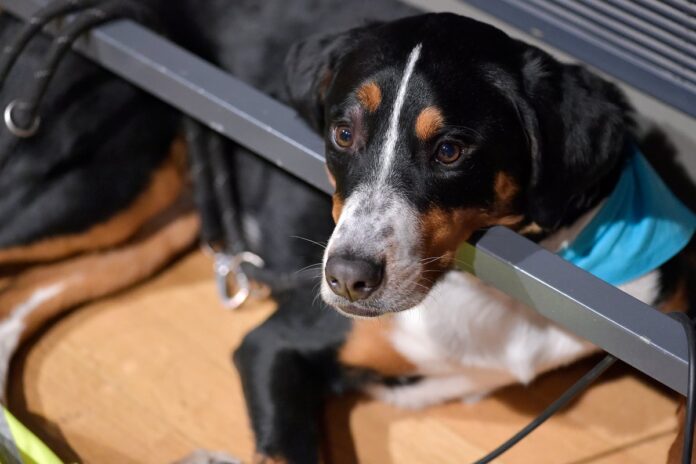Dogs visiting the northern Italian city of Bolzano may soon face a charge of their own, as authorities move to introduce a tourist tax specifically for pets starting in 2026.
Under a draft law announced this week, tourists bringing dogs into the provincial capital of South Tyrol must pay €1.50 (£1.31) per animal per night, Ansa reported.
Residents too will face an annual ownership fee of around €100 (£87.28).
The plan by Bolzano’s provincial government is aimed at covering the rising costs of street cleaning and public services linked to dog fouling, with revenues earmarked for extra waste bins, maintenance of green spaces, and creation of designated dog areas and parks, according to a report by Il Sole 24 Ore.
The proposal comes as frustration mounts among officials and residents over the impact of pets on public spaces in South Tyrol, a region popular with hikers and tourists.
The proposed dog tax aims to replace a controversial DNA testing scheme introduced last year seeking to identify irresponsible owners who don’t clean up after their pets through mandatory dog DNA registration.
A dog DNA registration database was set up but compliance was low. The New York Times reports that a mere 12,000 of the 30,000 dog owners in the province signed up despite a €1,048 (£914.54) fine for anyone refusing to comply.
Owners of dogs who do not clean up after their pets will continue to face fines between €200 to €600 (£174.5 to £523.5).
Luis Walcher, provincial councillor, said that owners whose dogs were registered in the database would be exempted from the resident tax for two years.
“This is a fair measure because it concerns dog owners exclusively. Otherwise, sidewalk cleaning would be the responsibility of the entire community, when it must be said that the only filth on our city streets is dog waste,” he said.
Animal welfare organisations condemned the planned tax as unfair and counterproductive.
The Italian National Animal Protection Agency warned that it could discourage people from registering or adopting dogs.
“After the resounding and costly failure of the absurd dog DNA project, instead of focusing on civic education, targeted checks, and citizen awareness, we’re once again choosing the easy way out: taxing animals and their owners,” the agency’s Carla Rocchi said.
“This measure not only penalises families and tourists who choose to travel with their dogs, but also sends a profoundly flawed message: turning animals into taxpayers’ cash machines. ENPA reminds us that pets are not a luxury, but an integral part of families. Targeting them with new taxes doesn’t solve the problems of incivility experienced by a few, but risks only discouraging responsible travel and, even worse, encouraging abandonment.”

Mayor Claudio Corrarati also criticised the tax, telling RTL radio: “We would be dogs to impose a tax on dogs.”
Italy previously debated a national proposal to introduce a levy on cats and dogs to raise funds for debt-strapped municipalities in 2012, but it was scrapped within hours after it provoked outrage from animal welfare groups, politicians, and the public.
“The only thing that’s left to tax are wives and children,” parliamentarian Domenico Scilipoti said at the time.
In 2023, the province had to impose a cap on tourist numbers to prevent overcrowding.
“We reached the limit of our resources, we had problems with traffic, and residents have difficulty finding places to live,” Bolzano provincial council member and tourism official Arnold Schuler said.

